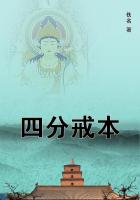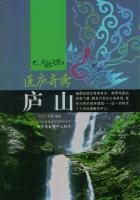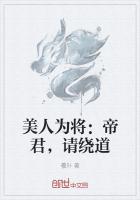That the clergy of the Middle Ages, who caused accused persons to walk blindfold among red-hot plowshares, or hold heated irons in their hands, were in possession of the secret of the trick, is shown by the fact that after trial by ordeal had been abolished the secret of their methods was published by Albert, Count of Bollstadt, usually called Albertus Magnus but sometimes Albertus Teutonicus, a man distinguished by the range of his inquiries and his efforts for the spread of knowledge.
These secrets will be fully explained in the section of this history devoted to the Arcana of the Fire-Eaters (Chapter Six).
I take the following from the New York Clipper-Annual of 1885:
The famous fire dance of the Navajo Indians, often described as though it involved some sort of genuine necromancy, is explained by a matter-of-fact spectator.
It is true, he says, that the naked worshipers cavort round a big bonfire, with blazing faggots in their hands, and dash the flames over their own and their fellows'
bodies, all in a most picturesque and maniacal fashion; but their skins are first so thickly coated with a clay paint that they cannot easily be burned.
An illustrated article entitled Rites of the Firewalking Fanatics of Japan, by W.C.
Jameson Reid, in the Chicago Sunday Inter-Ocean of September 27th, 1903, reveals so splendid an example of the gullibility of the well-informed when the most ordinary trick is cleverly presented and surrounded with the atmosphere of the occult, that I am impelled to place before my readers a few illuminating excerpts from Mr.Reid's narrative.This man would, in all probability, scorn to spend a dime to witness the performance of a fire-eater in a circus sideshow; but after traveling half round the world he pays a dollar and spends an hour's time watching the fanatical incantations of the solemn little Japanese priests for the sake of seeing the ``Hi-Wattarai''--which is merely the stunt of walking over hot coals --and he then writes it down as the ``eighth wonder of the world,'' while if he had taken the trouble to give the matter even the most superficial investigation, he could have discovered that the secret of the trick had been made public centuries before.
Mr.Reid is authority for the statement that the Shintoist priests' fire-walking rites have ``long been one of the puzzling mysteries of the scientific world,'' and adds ``If you ever are in Tokio, and can find a few minutes to spare, by all means do not neglect witnessing at least one performance of `Hi-Wattarai'
(fire walking, and that is really what takes place), for, if you are of that incredulous nature which laughs with scorn at so-called Eastern mysticism, you will come away, as has many a visitor before you, with an impression sufficient to last through an ordinary lifetime.''
Further on he says ``If you do not come away convinced that you have been witness of a spectacle which makes you disbelieve the evidence of your own eyes and your most matter-of-fact judgment, then you are a man of stone.'' All of which proves nothing more than that Mr.Reid was inclined to make positive statements about subjects in which he knew little or nothing.
He tells us further that formerly this rite was performed only in the spring and fall, when, beside the gratuities of the foreigners, the native worshipers brought ``gifts of wine, large trays of fish, fruit, rice cakes, loaves, vegetables, and candies.'' Evidently the combination of box-office receipts with donation parties proved extremely tempting to the thrifty priests, for they now give what might be termed a ``continuous performance.''
Those who have read the foregoing pages will apply a liberal sprinkling of salt to the solemn assurance of Mr.Reid, advanced on the authority of Jinrikisha boys, that ``for days beforehand the priests connected with the temple devote themselves to fasting and prayer to prepare for the ordeal....The performance itself usually takes place in the late afternoon during twilight in the temple court, the preceding three hours being spent by the priests in final outbursts of prayer before the unveiled altar in the inner sanctuary of the little matted temple, and during these invocations no visitors are allowed to enter the sacred precincts.''
Mr.Reid's description of the fire walking itself may not be out of place; it will show that the Japs had nothing new to offer aside from the ritualistic ceremonials with which they camouflaged the hocus-pocus of the performance, which is merely a survival of the ordeal by fire of earlier religions.
``Shortly before 5 o'clock the priests filed from before the altar into some interior apartments, where they were to change their beautiful robes for the coarser dress worn during the fire walking.In the meantime coolies had been set to work in the courtyard to ignite the great bed of charcoal, which had already been laid.The dimensions of this bed were about twelve feet by four, and, perhaps, a foot deep.














